The USA Caribbean Investment Forum took place over two days last week at the New York Marriott Marquis Times Square. The event, hosted by the Caribbean Association of Investment Promotion Agencies (CAIPA) in partnership with representatives of the CARICOM Consular Corps (namely, the Consulates General of Trinidad & Tobago, Barbados, St. Vincent & the Grenadines and Antigua & Barbuda), brought together government officials, investment promotion agencies, entrepreneurs, and business leaders from the Caribbean diaspora to connect, engage in thoughtful discussions, and explore investment opportunities throughout the Caribbean.
Fostering International Collaboration
The event featured distinguished speakers and representatives from both the US and Caribbean governments. 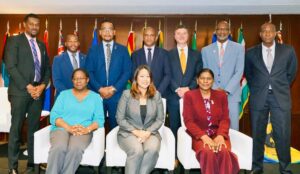 Consuls General Mr. Mackie Holder (Barbados), Mr. Jerome Andre Laveau (Trinidad & Tobago), and Mr. Rondy McIntosh (Saint Vincent and the Grenadines) along with Jeanette Moy, Commissioner of the NYS Office of General Services, Edward Mermelstein, NYC Commissioner of International Affairs, and Molly Bauer, Industry Development Associate from the NY Governor’s Office, shed light on the initiatives that New York City, which is home to so many Caribbean Diaspora, is implementing to support economic collaboration between the regions.
Consuls General Mr. Mackie Holder (Barbados), Mr. Jerome Andre Laveau (Trinidad & Tobago), and Mr. Rondy McIntosh (Saint Vincent and the Grenadines) along with Jeanette Moy, Commissioner of the NYS Office of General Services, Edward Mermelstein, NYC Commissioner of International Affairs, and Molly Bauer, Industry Development Associate from the NY Governor’s Office, shed light on the initiatives that New York City, which is home to so many Caribbean Diaspora, is implementing to support economic collaboration between the regions.
Engaging with Global Leaders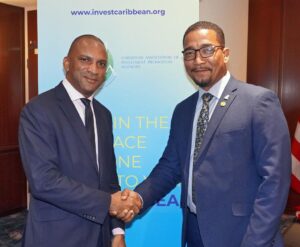
Hon. Kenneth Bryan, Minister for Tourism & Ports, Cayman Islands, and Chair of Caribbean Tourism Organization (CTO) and Hon. E. Jay Saunders, Deputy Premier, Minister of Finance, Trade and Investment, Turks and Caicos Islands delivered insights via keynote speeches and held candid discussions during panel and Q&A sessions. The event served as a unique opportunity to communicate in an open and honest forum with two esteemed leaders from the Caribbean about investing in the region.
Promoting Investment Opportunities
CAIPA welcomed representatives from Invest Barbados, Invest Dominica, Grenada Investment Development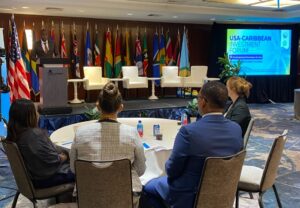 Corporation (GIDC), InvesTT (Trinidad and Tobago), Invest Turks and Caicos, St. Kitts Investment Promotion Agency (SKIPA), Invest St. Lucia, Invest St. Vincent & the Grenadines, the Bahamas Investment Authority, the Curacao Investment and Export Promotion Agency (CINEX), and the Sint Maarten Ministry of Tourism, Economy, Transport and Telecommunications, to discuss various opportunities for investment in their respective countries and how their agencies support and facilitate potential investors.
Corporation (GIDC), InvesTT (Trinidad and Tobago), Invest Turks and Caicos, St. Kitts Investment Promotion Agency (SKIPA), Invest St. Lucia, Invest St. Vincent & the Grenadines, the Bahamas Investment Authority, the Curacao Investment and Export Promotion Agency (CINEX), and the Sint Maarten Ministry of Tourism, Economy, Transport and Telecommunications, to discuss various opportunities for investment in their respective countries and how their agencies support and facilitate potential investors.
Hearing Private Sector Success Stories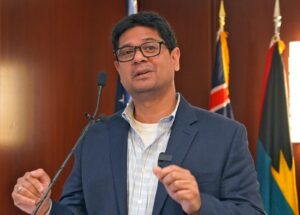
Private sector companies including the St. James School of Medicine, Century21 Guyana, Ethniv, and Homestrings joined the forum to discuss their current active projects in the Caribbean. They detailed how they’ve worked with local governments and institutions to successfully launch and operate their businesses in the Caribbean, along with the potential opportunities for continued growth.
Understanding How Caribbean Financial Institutions Facilitate Investment
The Forum brought together key representatives from Caribbean financial and economic development institutions: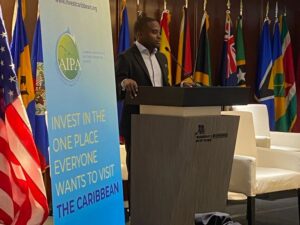 IDB Lab (Ms. Magdalena Coronel, Chief Investment Officer), the National Commercial Bank Jamaica LTD (Mr. Jeffrey Brown, Head, Loans Structuring and Syndications), USAID (Mr. Mervyn Farroe, USAID representative for the Eastern and Southern Caribbean), and the Caribbean Development Bank (Ms. Lisa Harding, Private Sector Development Specialist) to detail how these organizations facilitate and support private investment in the Caribbean.
IDB Lab (Ms. Magdalena Coronel, Chief Investment Officer), the National Commercial Bank Jamaica LTD (Mr. Jeffrey Brown, Head, Loans Structuring and Syndications), USAID (Mr. Mervyn Farroe, USAID representative for the Eastern and Southern Caribbean), and the Caribbean Development Bank (Ms. Lisa Harding, Private Sector Development Specialist) to detail how these organizations facilitate and support private investment in the Caribbean.
Forging Connections
Attendees had the opportunity to meet directly with CAIPA member countries during business meetings. These one-on-one conversations were valuable opportunities to speak directly with key stakeholders in order to advance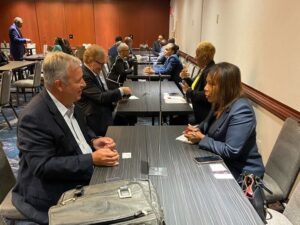 projects and forge direct relationships.
projects and forge direct relationships.
The inaugural USA Caribbean Investment Forum was a great success due to the collaboration and engagement from individuals representing a wide range of sectors, organizations, and countries – all united under the goal of driving economic growth in the Caribbean and taking advantage of the enormous opportunities available in the region.
CAIPA and the representatives of the CARICOM Consular Corps are proud to have facilitated these conversations and supported deepening of relationships with key stakeholders throughout the US and the Caribbean. We look forward to our next event, which will be held on 6-8 March in Miami (Caribbean Logistics Investment Conference 2024) – focused on attracting investments into logistics and transportation by sea and air as well as e-commerce logistics and industrial logistics parks throughout the Caribbean. Stay tuned for more details!
If you or anyone you know is interested in joining the CAIPA mailing list, please visit: https://www.investincaribbean.org/news-center/sign-up-for-our-newsletter to sign up for our newsletter.
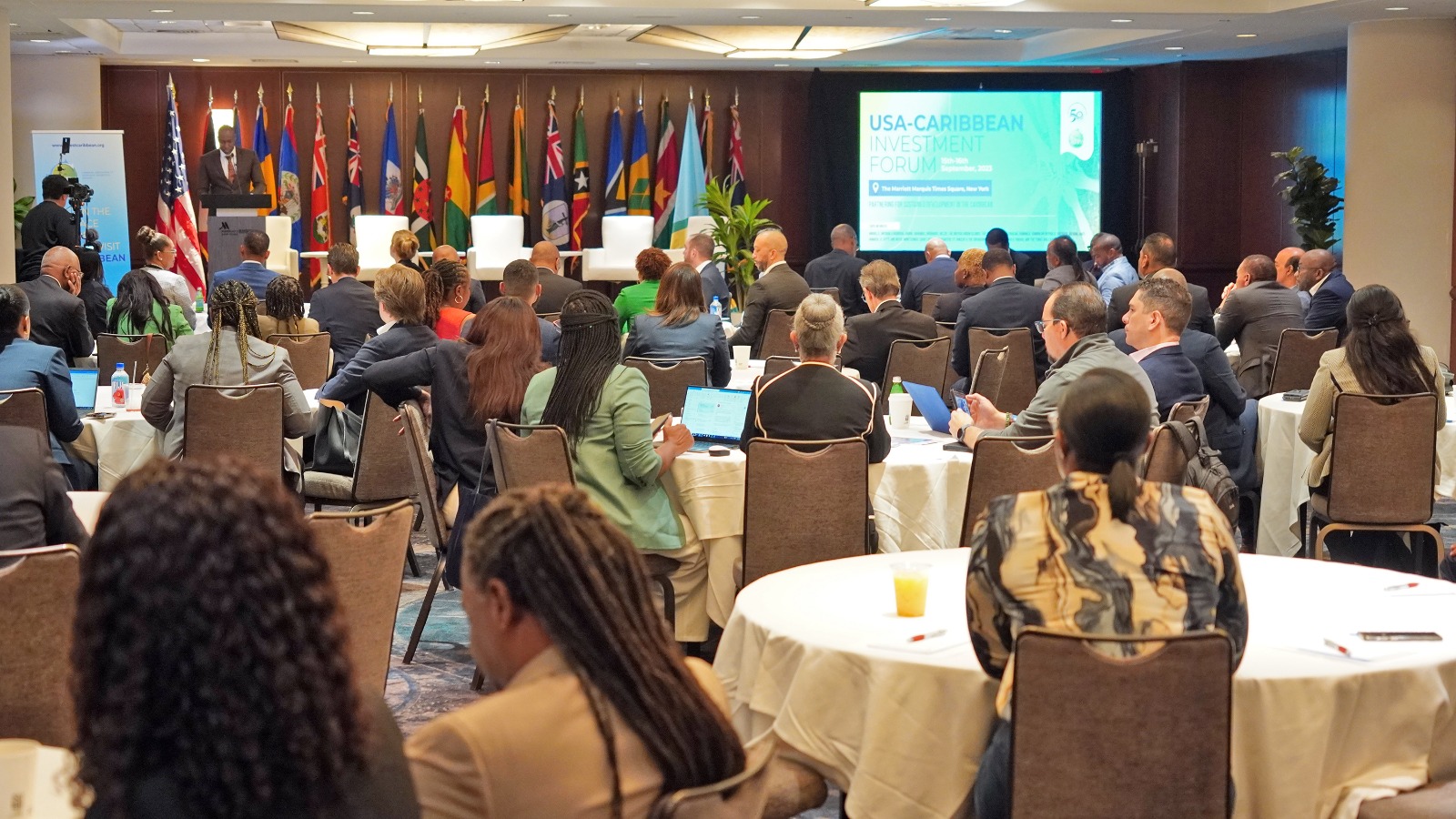

 News1 week ago
News1 week ago
 Caribbean News1 week ago
Caribbean News1 week ago
 News1 week ago
News1 week ago
 News6 days ago
News6 days ago
 News6 days ago
News6 days ago
 News17 hours ago
News17 hours ago

















